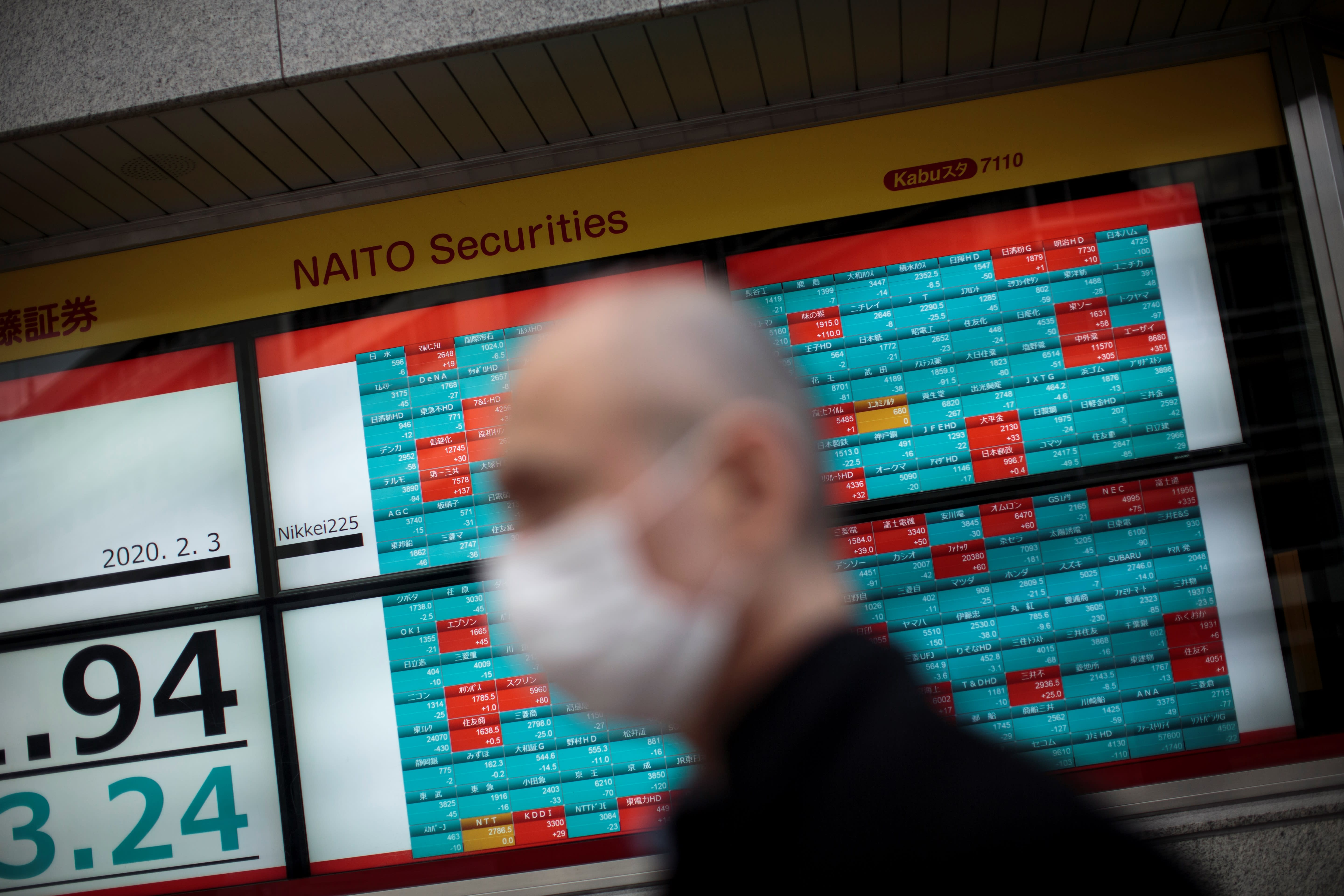
Asia markets mostly traded higher Monday afternoon as investors continued to watch for developments on issues such as the coronavirus pandemic, with gold prices surging to record highs.
Stocks in Taiwan led gains among the region’s major markets as the Taiex soared 2.42%, with shares of Taiwan Semiconductor Manufacturing Company up nearly 10%. South Korea’s Kospi also saw robust gains as it rose 1.04%.
Mainland Chinese stocks were higher by the afternoon, with the Shanghai composite up slightly while the Shenzhen component added 0.224%. Hong Kong’s Hang Seng index, however, fell into negative territory as it slipped fractionally.
On the economic data front, China’s industrial profits for June soared 11.5% year-on-year, according to the country’s National Bureau of Statistics.
Japanese stocks were mixed, with the Nikkei 225 slipping 0.18% while the Topix index hovered above the flatline.
The Bank of Japan’s Summary of Opinions for its mid-July meeting, released Monday, said the country’s economy is expected to “pick up moderately” from the second half of 2020. The central bank warned, however, that the economy is “unlikely to return to the level reached before the outbreak of COVID-19” even in fiscal 2022.
Over in Australia, the S&P/ASX 200 edged up by 0.18%.
Overall, the MSCI Asia ex-Japan index traded 0.8% higher.
Meanwhile, gold prices soared to a new record on Monday during Asian trading hours. Spot gold traded as high as $1,943.9275 before paring gains to change hands at around $1,931.76. Those levels eclipsed the previous record high price set in September 2011.
Investor attention was likely on lawmakers stateside as they attempt to push forward on another coronavirus stimulus package. U.S. Treasury Secretary Steven Mnuchin said Sunday that Republicans have finalized a bill worth about $1 trillion in coronavirus relief funds.
Globally, more than 16 million people have been infected by the coronavirus, with the U.S. accounting for roughly a quarter of that figure, according to data compiled by Johns Hopkins University.
U.S.-China tensions, which took center stage last week as mainland Chinese stocks plunged on Friday amid a sharp exchange of words between the two economic powerhouses, also continued to be monitored by investors.
“Intermittent spikes in US‑China tensions are likely to become the norm as the 3 November US Presidential election nears,” economists at Commonwealth Bank of Australia wrote in a morning note.
The U.S. dollar index, which tracks the greenback against a basket of its peers, was at 93.978 after slipping from levels above 96 last week.
The Japanese yen traded at 105.63 per dollar after strengthening sharply late last week from levels above 106.5 against the greenback. The Australian dollar changed hands at $0.7136 following its rise from levels below $0.702 last week.
Oil prices were little changed in the afternoon of Asian trading hours, with international benchmark Brent crude futures hovering above the flatline at $43.35 per barrel. U.S. crude futures rose fractionally to $41.31 per barrel.
Source: CNBC
